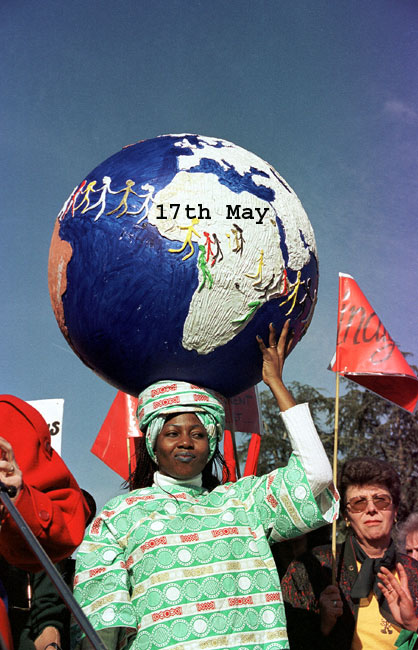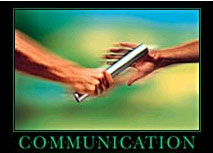World Telecommunication Day (WTD)
commemorates the founding of ITU on 17 May 1865. This year, WTD carries added significance
as 17 May has been identified by the Tunis phase of the World Summit on the Information
Society as “World Information Society Day”.
In today’s interconnected and increasingly networked world, societies are vulnerable
to a wide variety of threats, including deliberate attacks on critical information
infrastructures with debilitating effects on our economies and on our societies. In order
to safeguard our systems and infrastructure and in order to instill confidence in online
trade, commerce, banking, telemedicine, e-government and a host of other applications, we
need to strengthen our collective global cybersecurity. As this depends on the security
practices of each and every networked country, business, and citizen, we need to develop a
global culture of cybersecurity.
This is why, the ITU Council chose to
highlight the serious challenges we face in ensuring the safety and security of networked
information and communication systems and adopted the theme Promoting Global
Cybersecurity for World Telecommunication Day 2006.
Message from
Ko´chiro Matsuura, Director-General of UNESCO,
on the occasion of the first "World Information Society Day"
|
 |
There can be no genuine knowledge societies without free and unhindered
access to information and knowledge. The first World
Information Society Day, which has been proclaimed by the United Nations General Assembly,
is an occasion to reaffirm the strong commitment made by the international community at
the World Summit on the Information Society (WSIS) to build a people-centred and
development-oriented information society. To this end, World Information Society Day seeks
to promote awareness of the potential benefits of the Internet and Information and
Communication Technology (ICT) to people and their communities everywhere. Those benefits
include the possibilities to enhance economic and social development as well as develop
effective ways to bridge the digital divide.
For UNESCO, World Information Society Day provides a welcome opportunity to recall that
the information society is only a step towards building knowledge societies that are
inclusive, plural, participatory and holistic, that capture the complexity and dynamics of
the present globalization process, and in which both men and women can express themselves
freely. The concept of "knowledge societies", which UNESCO has championed, is
based on four fundamental principles: (i) freedom of expression; (ii) quality education
for all; (iii) universal access to knowledge and information; and (iv) respect for
cultural and linguistic diversity.
|
Mass
media and ICT have the potential to bring together individuals and communities from all
parts of the world into a global space with diverse and far-reaching opportunities for
development. However, a significant proportion of the world’s population will be
excluded from peace and prosperity if they are unable to participate in this global
community, to learn how to navigate their way through the constant flow of information, to
turn information into knowledge that is useful for their development and, above all, to
express themselves freely.
For UNESCO, the challenge of universality – creating inclusive knowledge societies in
which all have the chance to participate "regardless of frontiers" – is
inseparable from ensuring freedom of expression in the information society. There can be
no genuine knowledge societies without free and unhindered access to information and
knowledge. |
|

